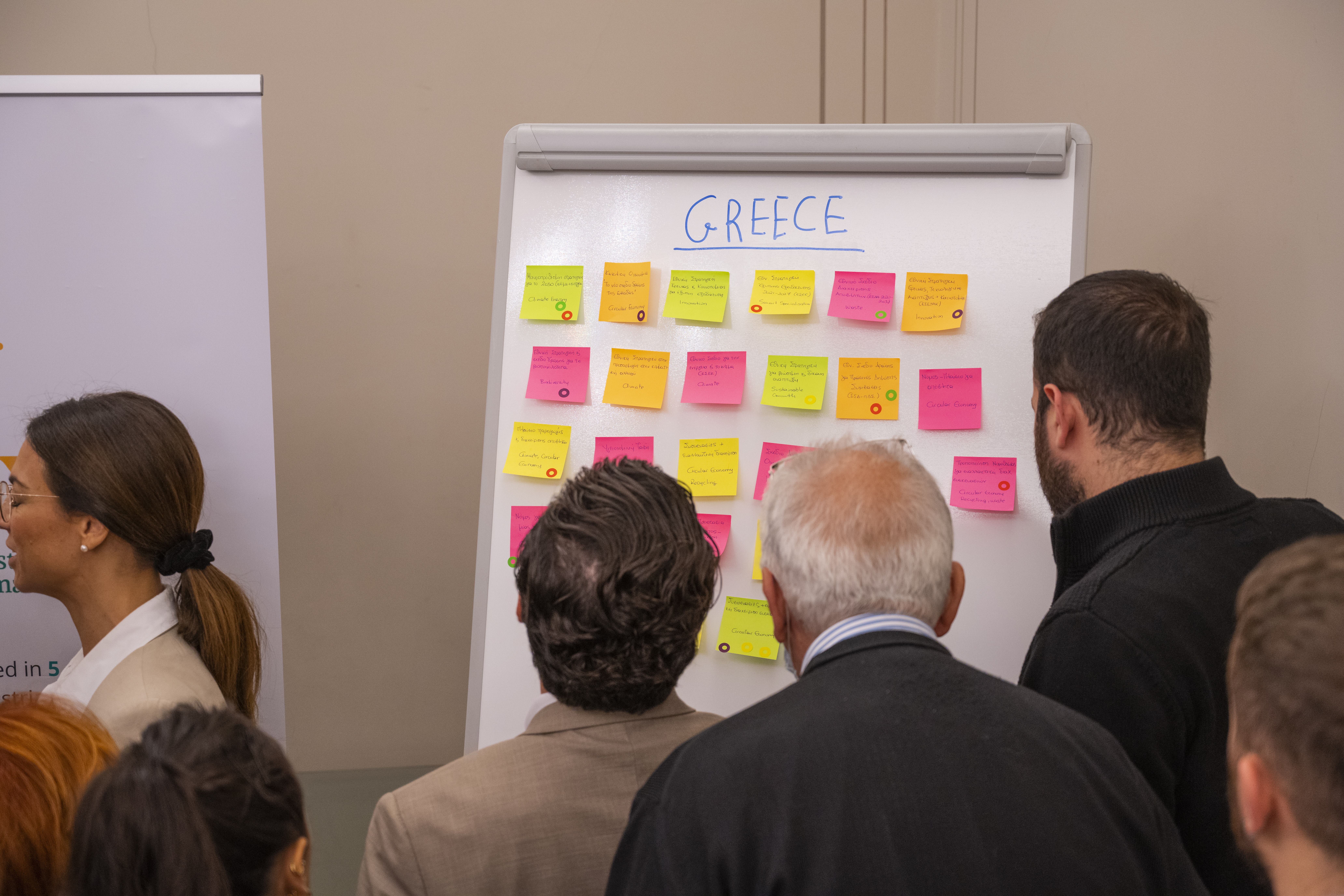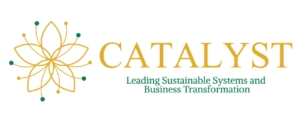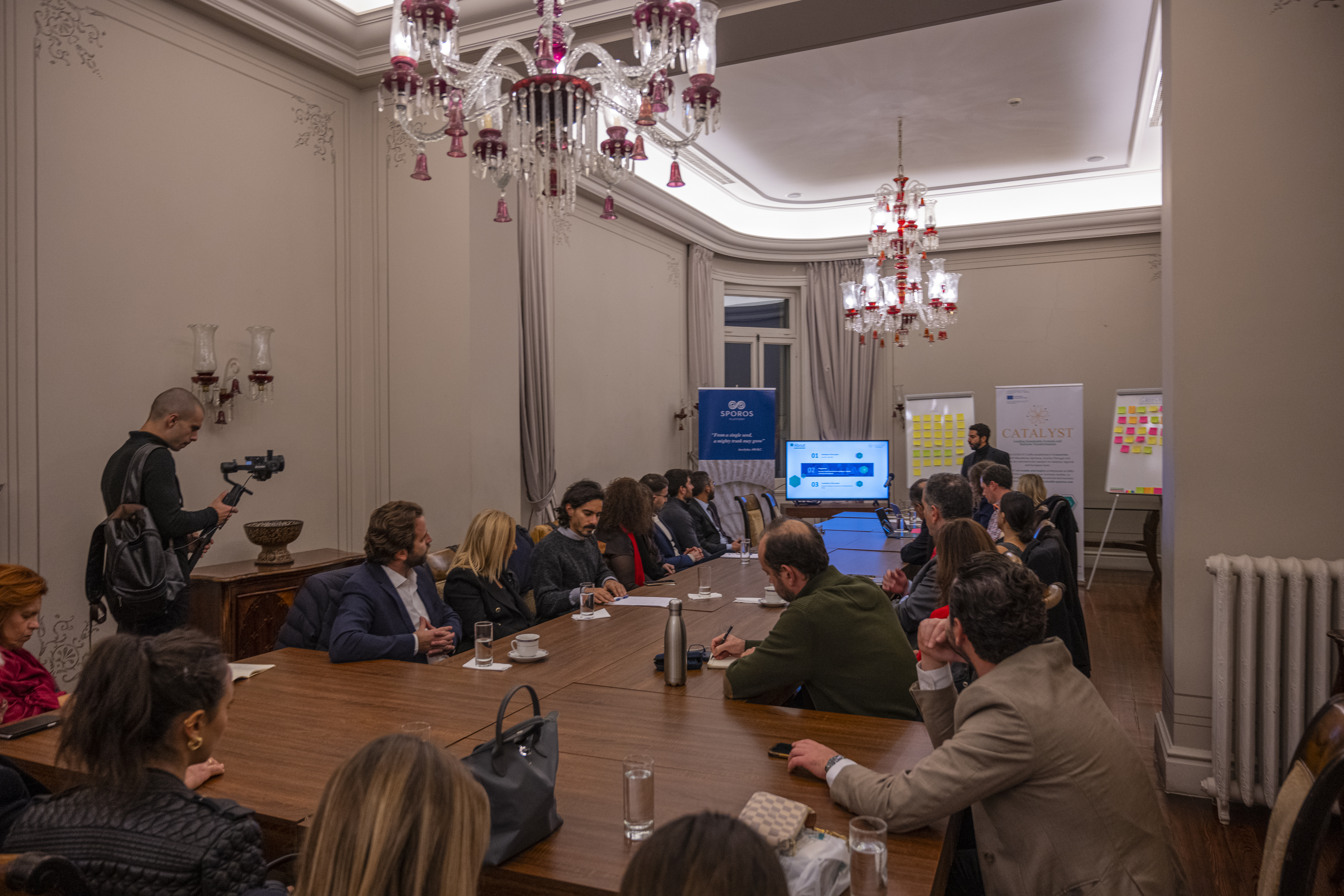National Round Table in Greece: Challenges and Perspectives in Leading Sustainable Systems and Business Transformation
National Round Table
The first national event of the CATALYST project in Greece was held on Dec. 2, 2022 at Megaron Hypatia, Ipeirou 2, Athens, organised by Sporos Circular Solutions, in collaboration with Athens University of Economics and Business & Creative Thinking Development.
At the exclusive workshop, a total of 44 participants attended the event, including managing partners from SMEs, representatives of public institutions, municipalities, and government, as well as students, job hunters, and education providers. The topic was framed on the challenges, hindrances and support for the sustainable transformation of organisations, with a specific focus on skills, education and training. The goals of the event were to present an overview of the CATALYST project to possible stakeholders and to carry out a group discussion about the main challenges each group faces in their effort to implement circularity and sustainability practices. The unique atmosphere, the participation of the guests and the collaboration are captured in the video below.
Roundtable perspectives
The first part of the discussion was focused on education, specifically on the re-skilling and upskilling of professionals to address current needs. Stakeholders from the government, the private job recruitment sector, and SMEs all expressed their thoughts on the current state of play, focusing on challenges and limitations to address these needs. SME employers expressed their difficulty recruiting workers with what they described as “basic competency” and “average-level skillsets”. This statement from a macro point of view was also confirmed by the job recruitment sector, supporting that there is a high offer of upper-level degrees such as MSc’s and PhD’s, but very low availability of unqualified and qualified workers/technicians.
Several participants emphasized that there is a shortage of skills, not of degrees. Representatives from municipalities stated that their workforce is under skilled, lacking the educational background to build upon for contemporary roles and requirements.
The process of upskilling and reskilling also brings in new concepts of climate change awareness. As such, the conversation shifted to the current state of play of organisations with regards to circular and sustainable initiatives. For start-ups, especially those with sustainability being part of their core mission, the environment in Greece is not yet friendly enough to create adequate pull. According to participants, business activities related to sustainability and circularity are not yet existent from the point of view of public authorities, which means that they cannot be tax-alleviated.

Challenges and Recommendations
Strengthening public sector recruitment standards significantly, ensuring that candidates possess the necessary skills and knowledge related to climate change and sustainability is one of the main conclusions. This can be achieved by connecting public sector recruitment with the development of academic curricula focused on these critical areas.
The second conclusion is that there is a need to improve governmental monitoring of skillsets demanded by the job market and swiftly implement upskilling and reskilling strategies. This necessitates enhancing the effectiveness of government programs and creating incentives, such as tax benefits, for both businesses and consumers to encourage sustainable practices. Additionally, imposing taxes on the carbon footprint of products and services can further drive sustainability initiatives at the consumer level.
How to Get Involved
If you want to become part of our CATALYST Network and support our activities, fill in the form of interest.
Follow us on social media and get the latest news.



